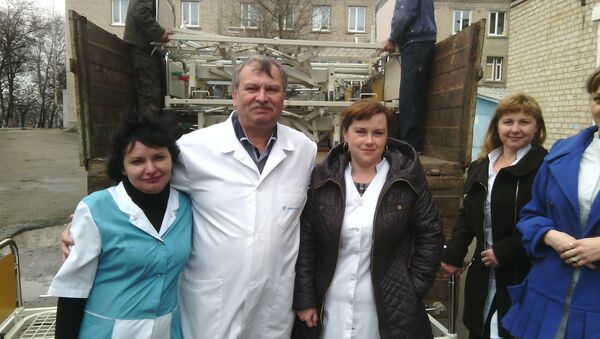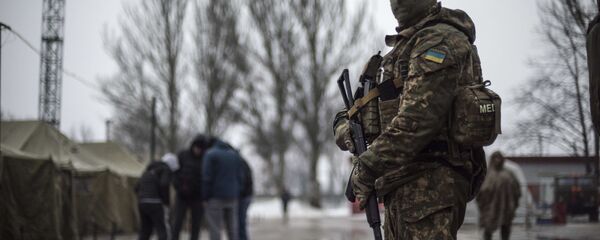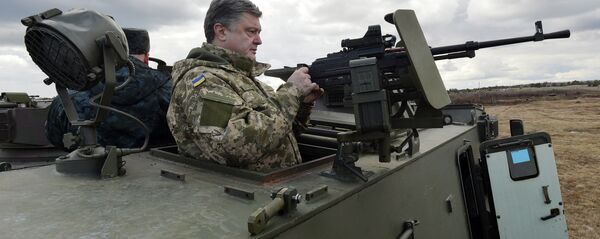The charity is called "Zukunft Donbass" (Future Donbass) and is based in the state of Thuringia. The German activists have been supporting the people of Donbass for over a year and felt moved to send aid because of the devastation caused by Kiev's military operation there.
Spokeswoman Ivana Steinigk, who has recently returned from a visit to Donbass, said that conditions there are gradually getting better thanks to humanitarian aid from their organization and others who are keen to help.
"Of course, people are suffering from the consequences of war and the blockade. However, the grocery stores have opened again, the schools are open, the hospitals are being renovated. You can see some progress, that things are being rebuilt."
Steinigk said that the German charity focused on medical equipment because it is desperately needed by Donbass hospitals, which have suffered bombardment by the Ukrainian army and an ongoing economic blockade sanctioned by Kiev.
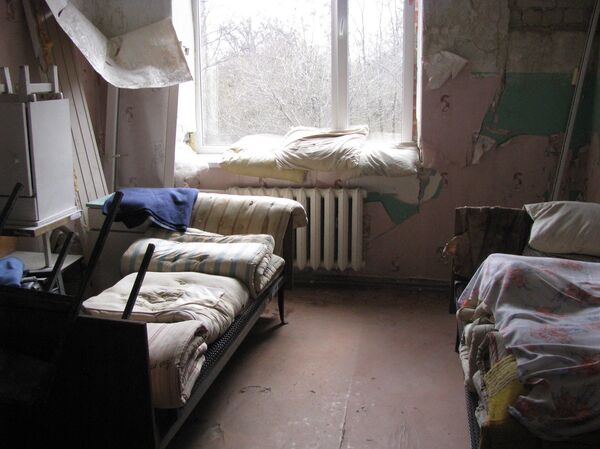
"Some hospitals have been rebuilt with the aid of charitable funds from Russia. The bullet holes from the rocket launchers have been covered up, but there are very few medical devices and the patients' rooms are ill-equipped," she explained.
On May 4, Zukunft Donbass delivered a truck of medical equipment to the residents of Pervomaisk and Novosvitlivka, towns in Lugansk which are close to the line of conflict between the Ukrainian army and pro-independence forces of the self-proclaimed Lugansk People's Republic (LPR).
The truck contains hospital beds, furniture for patients' rooms, infusion equipment, ECGs and wheelchairs. The equipment has come from Thuringia hospitals which no longer use it, is being sent to Lugansk with the help of private donations.
Steinigk said that the German authorities have played no part in the charitable action, a consequence of Berlin's political stance regarding the Donbass conflict.
"I have the impression that this is too much of a hot topic for German politicians. So far we've had no support. If you heard the press conference in Sochi and the completely different standpoints of Merkel and Mr. Putin on the conflict in the Eastern Ukraine and its causes, you saw that that the German and Russian views are completely different," Steinigk said.
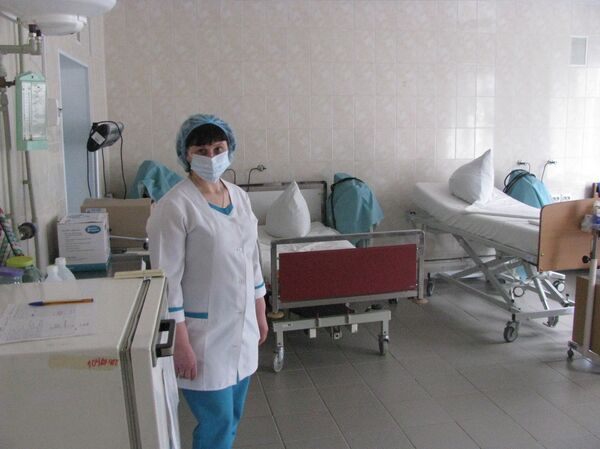
The blockade has forced the charity to deliver its supplies via the Russian border. That makes the humanitarian action illegal under Ukrainian law, a fact which the German foreign ministry has reminded the organizers about.
"We were contacted by the German Ministry of Foreign Affairs and informed that what we are doing is illegal. We have now written another official request to Kiev, in which we explain who we are and our work."
"We already did this over a year ago, before we started the deliveries, and didn't get an answer. Now we are also waiting for an answer as to how we can legally send these relief supplies to the LPR. We imagine that this will be very difficult, however, since the area is now completely blocked by the Ukrainian side," Steinigk said.
"If you completely cut off the areas from the electricity, gas and water supply, people are pushed more and more towards Russia. I believe this is a quite intentional tactic," the activist said.
"The overwhelming majority of the people I spoke to in Lugansk can hardly imagine being reintegrated into Ukraine. Not only on a practical, but also on an emotional level, it would be too difficult for people to return to a country that was shooting at them," she explained.
Never miss a story again — sign up to our Telegram channel and we'll keep you up to speed!

